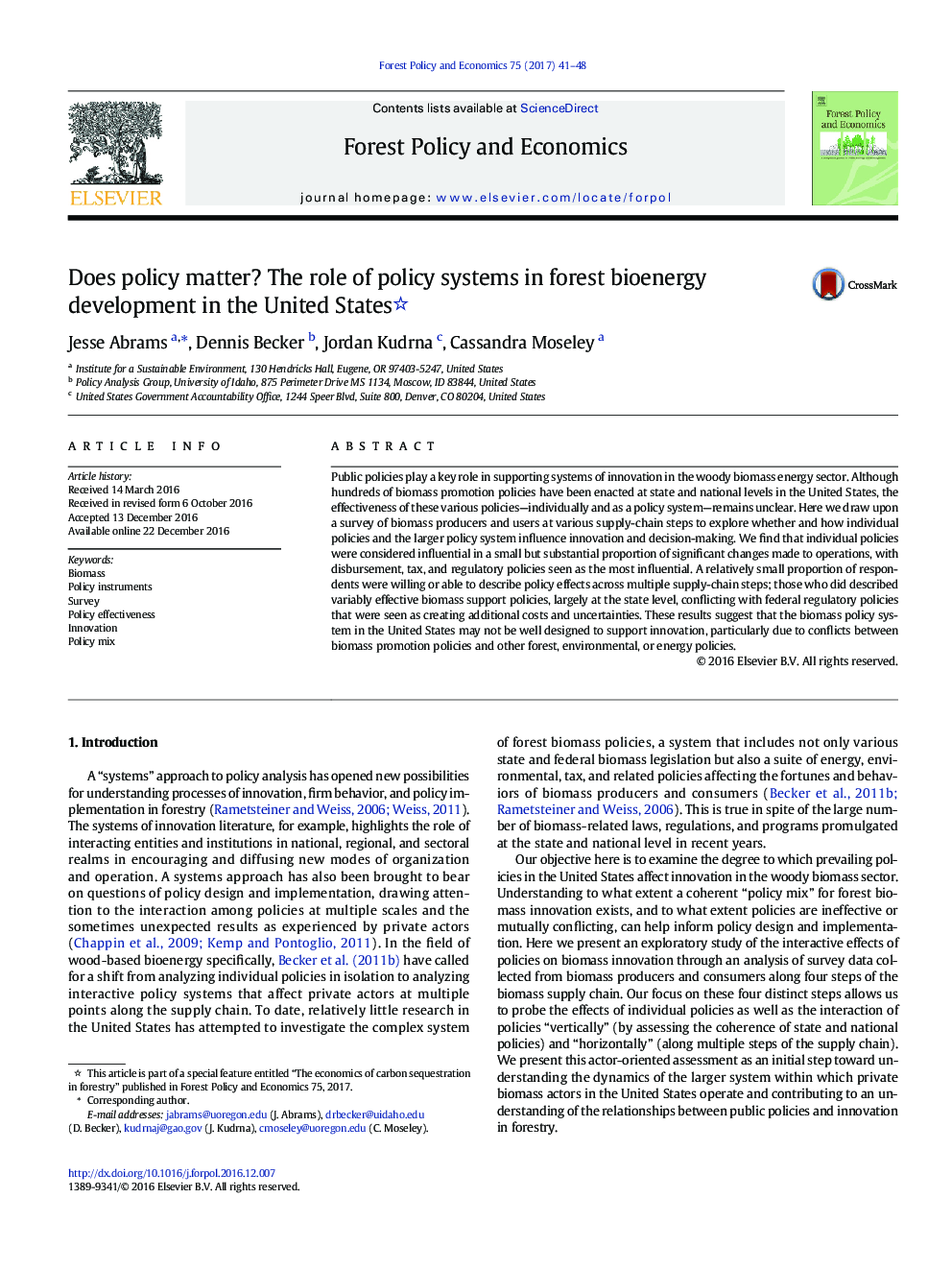| Article ID | Journal | Published Year | Pages | File Type |
|---|---|---|---|---|
| 6459785 | Forest Policy and Economics | 2017 | 8 Pages |
•Less than half of identified innovations were influenced by public policies.•Non-biomass environmental regulatory policies were a common policy concern.•The biomass policy system appears to be in conflict with non-biomass policies.•Many survey respondents struggled to articulate policy experiences.
Public policies play a key role in supporting systems of innovation in the woody biomass energy sector. Although hundreds of biomass promotion policies have been enacted at state and national levels in the United States, the effectiveness of these various policies—individually and as a policy system—remains unclear. Here we draw upon a survey of biomass producers and users at various supply-chain steps to explore whether and how individual policies and the larger policy system influence innovation and decision-making. We find that individual policies were considered influential in a small but substantial proportion of significant changes made to operations, with disbursement, tax, and regulatory policies seen as the most influential. A relatively small proportion of respondents were willing or able to describe policy effects across multiple supply-chain steps; those who did described variably effective biomass support policies, largely at the state level, conflicting with federal regulatory policies that were seen as creating additional costs and uncertainties. These results suggest that the biomass policy system in the United States may not be well designed to support innovation, particularly due to conflicts between biomass promotion policies and other forest, environmental, or energy policies.
